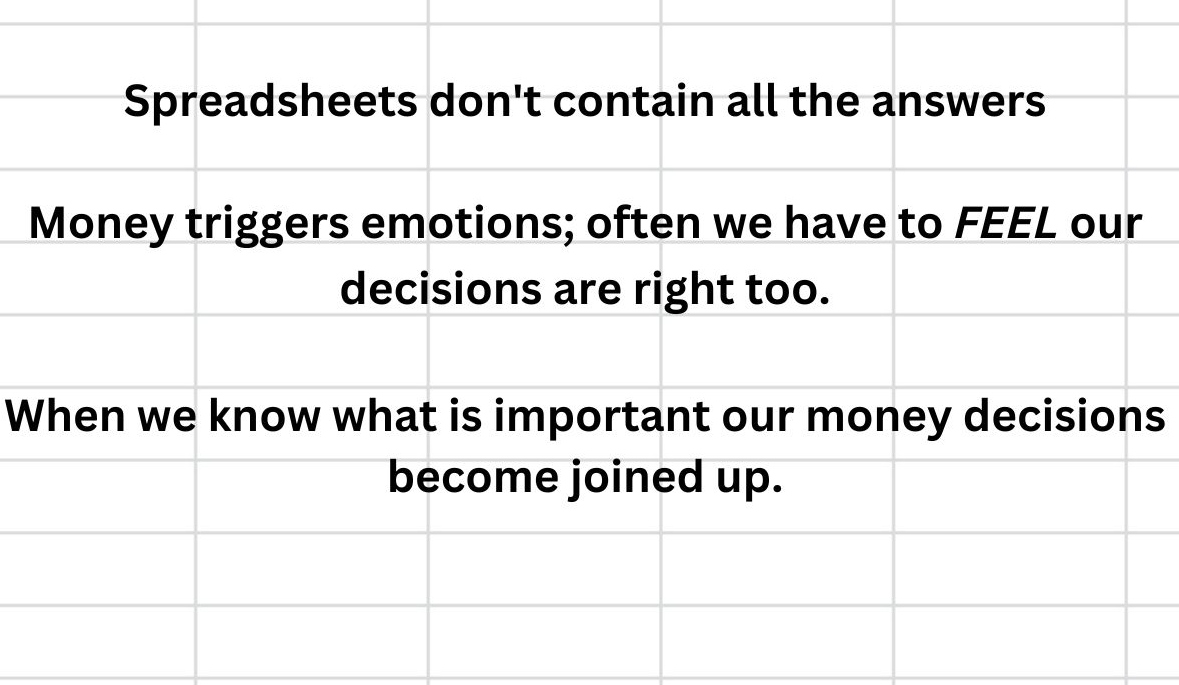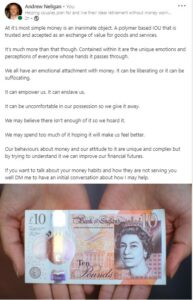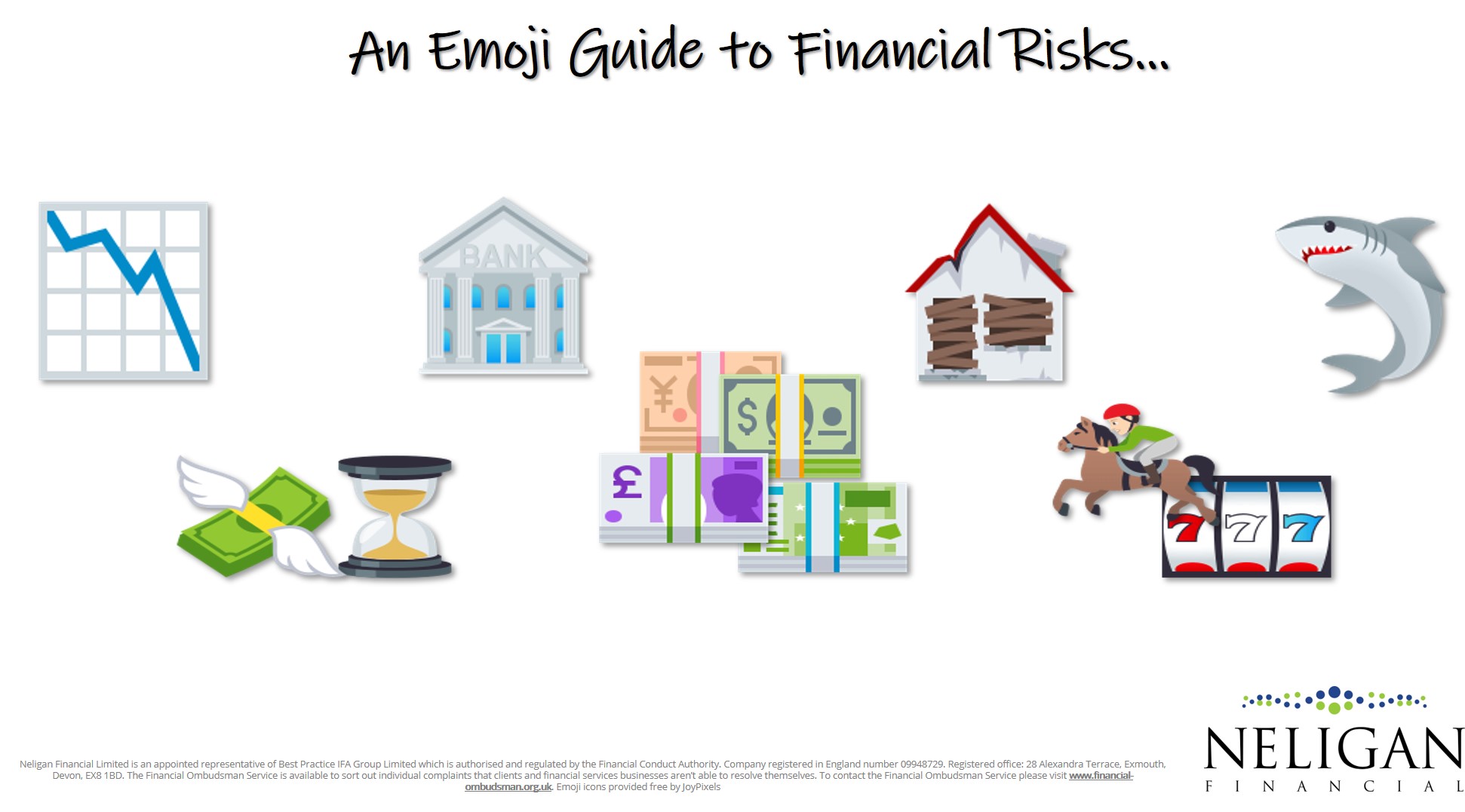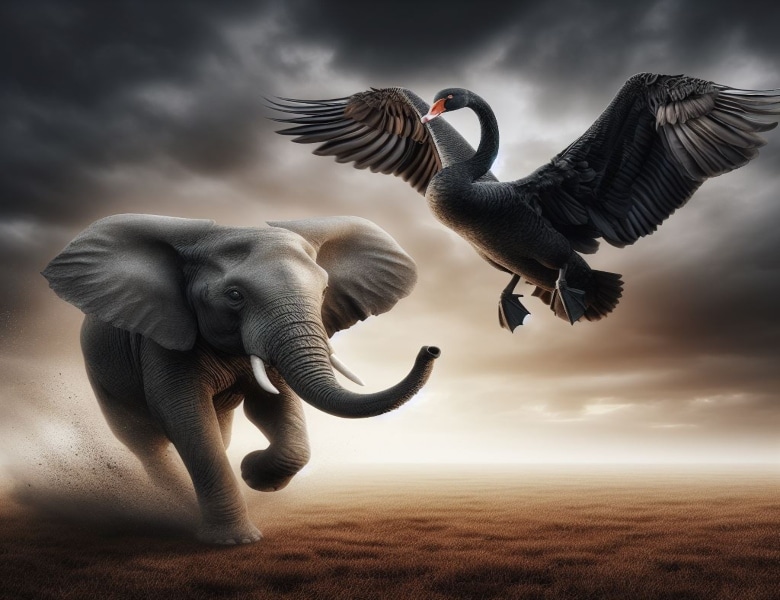
As I explained in this LinkedIn post, in its most simple form money is an inanimate object but in reality, it is much more than that. We attach meaning and emotion to it.

Spreadsheets Don’t Contain All The Answers
I was reminded of the emotional side of money the other day when talking to a couple. They logically know they have more than enough; a lifetime of diligent saving and the sale of a business ensured that. The spreadsheets confirmed it, but they both still feel a level of discomfort about whether they would be OK or not.
It was important to them to know that they will be able to afford later life care fees and not be a burden on their children. Having put five family members through care they are well aware of the cost of it. The experience gave them a sense of what to expect but still, despite, being able to put some numbers to it there remains an uneasiness over the affordability.
Added to the situation was a recent inheritance from the husband’s mother. It was not an insignificant amount but an amount that they know they don’t need. They know the appropriate thing to do is to amend his mother’s will and pass it straight to their children. The children don’t need the money either, they are financially successful in their own right but such a simple amendment could save £80,000 in inheritance tax in the future.
But, still, the emotional side is ruling the logic (because we make decisions emotionally and justify them logically). This inheritance represented their parent’s hard work; his father had built a successful business from scratch and took a cautious approach to money too. It was also his link to his mother who had died not long ago. As he was saying those words he could hear the false logic but it remained a difficult hurdle to clear in his mind.
Changing Beliefs
Our beliefs about money are formed in childhood through explicit messages and inferences from our parent’s behaviour. We carry these beliefs into adulthood which like many things formed over many years, are hard to lose. It is not until someone challenges our assumptions and perceptions do we consider that there is an alternative way of thinking.
Before Copernicus astrologists believed the earth was the centre of the universe.
It wasn’t until Ignaz Semmelweiss’ research into the causes of infant mortality in hospitals did doctors consider washing their hands before surgery.
Charles Darwin’s work on the Theory of Evolution challenged contemporaneous thinking on the creation of all living things.
Often, talking to someone who is emotionally disconnected from the issue can help you see your blind spots and provide you with fresh insights.
If you would like to discuss any challenges you have related to your money and the role it is playing in your life get in touch.
Photo by Dan Maisey on Unsplash







